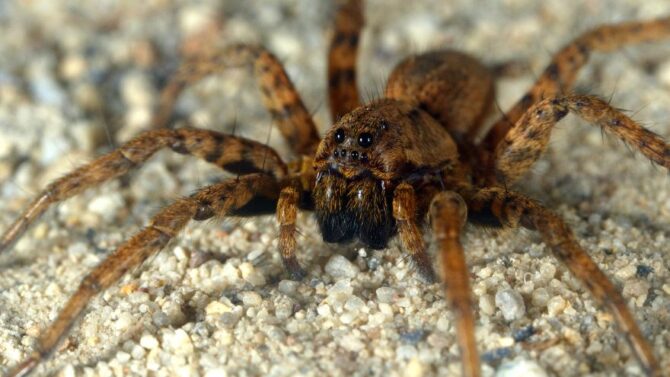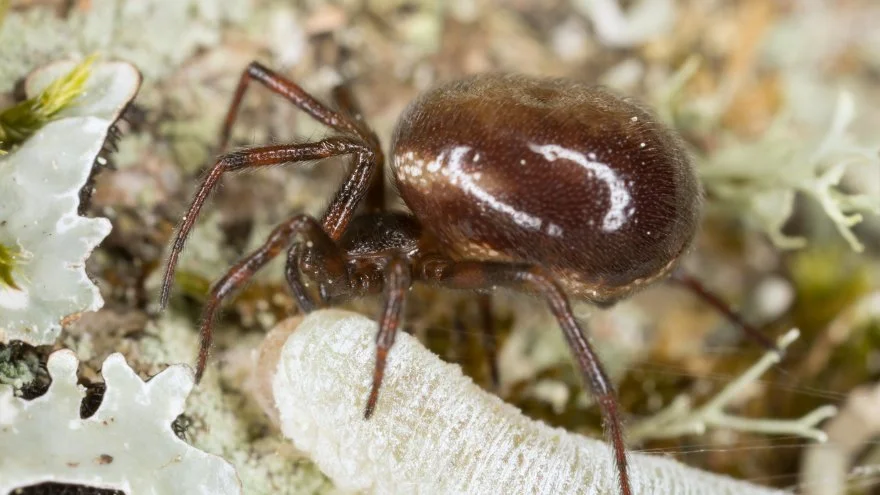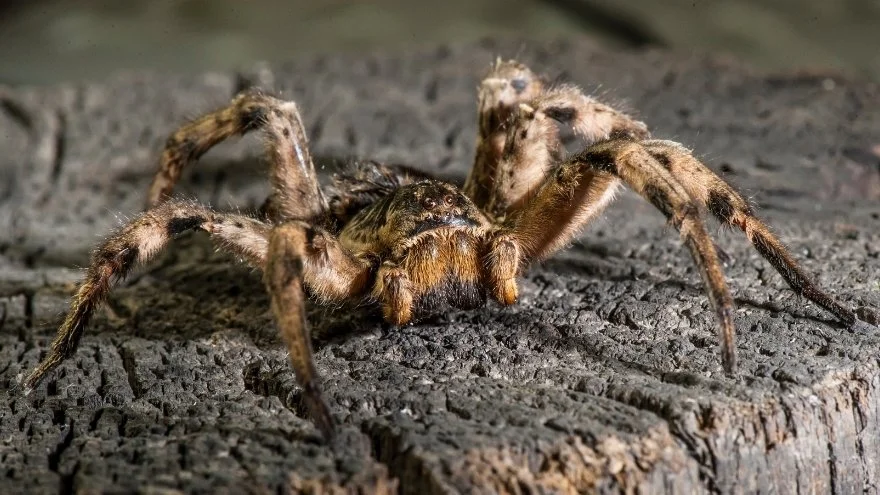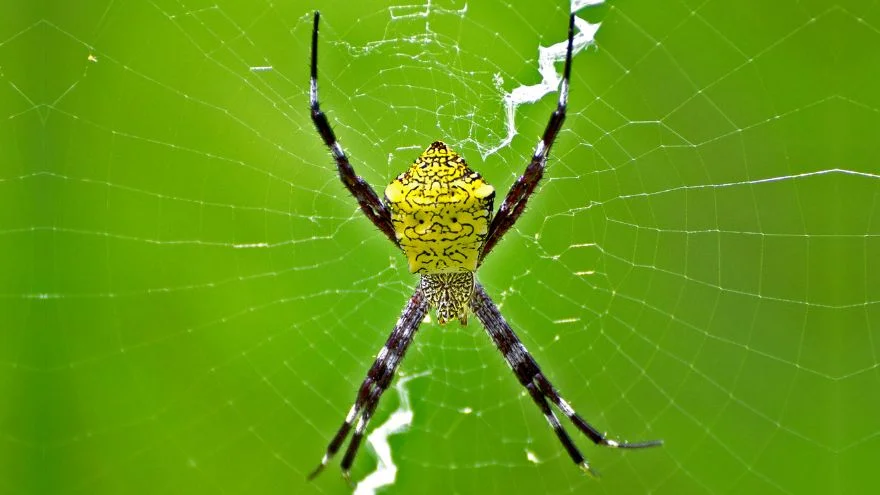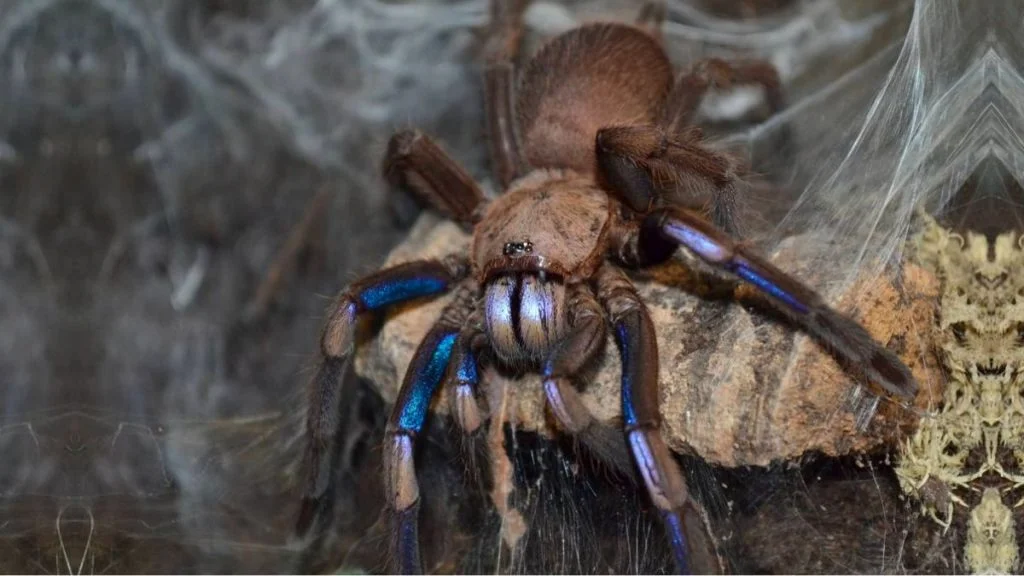Are wolf spiders poisonous is a question commonly asked by many who have come across these arachnids. Many do think the creatures are, no wonder, even the toughest adults might shriek at the sight of one of the world’s most commonly distributed spider families, wolf spiders.
Wolf spiders are not physically similar to their mammalian taxonomic animal-kingdom counterparts but share their name based on their hunting similarity.
These arachnids lack the basic spider ability to spin prey-trapping webs but make up for their deficiency by tracking, chasing, and pouncing on their prey like wolves, paralyzing them with their venom.
This venom is the subject of many people’s fear as they speculate on the threats it poses to humans. As a result, questions about the spider’s venom strength and its danger in proximity are not far from their lips.
This article brings everyone face-to-page with the wolf spider and its venom. Without further ado, let us dive in!
What Do Wolf Spiders Look Like?
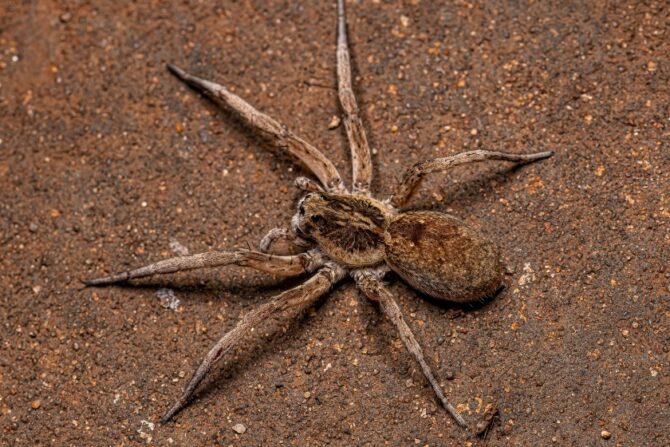
“Wolf spiders” does not refer to a specific arachnid species or a genus but a group constituting several wolf spider genera.
These spiders range in body size between 0.4 and 1.38 inches, excluding their legs.
While these spiders are usually dark brown with pale markings on their back, their coloration matches their habitat, serving as camouflage for protection.
Wolf spiders are physical twins to the brown recluse spider because of the similarities in their ecological traits and color indifference.
Both arachnids are intimidating with an aggressive appearance but are more likely to retreat as an initial impulse during human encounters.
However, they will not back down to attack humans, who are many times their size, if provoked, confronted, or trapped.
Wolf spiders are crucial contributors to natural insect population control and are often considered beneficial for preying on pests within farms and gardens.
Where Can You Find Wolf Spiders?
While most spider species spin webs and inhabit them, wolf spiders are ground dwellers, lacking that ecological trait of spiders.
You are not likely to find wolf spiders in the most lit areas of your home but in hidden places like under leaves and plants, grasses, inside logs, under rocks, tree crevices, and ground burrows in humid areas, including basements, sheds, doorways, windows, and garages.
Wolf Spider Bite
Wolf spiders go all in to display their ferocious hunting instincts and skills, but they only use their hunting tools as defense mechanisms against humans when they feel provoked.
The wolf spider’s venom is primarily formulated for nutritional purposes, usually plaguing small insects and choosing to conserve their venoms during human encounters unless provoked.
Unpurposeful provocations against a wolf spider might result in aggressive defensive behaviors, but the spider’s venom contains low neurotoxin levels.
While a wolf spider’s bite can be neurally uncomfortable, it can be no worse than a bee sting.
Wolf spider bites are similar to bug bites, albeit an excruciating neural reaction. How? Both arthropods leave an itchy and swollen red bump.
The pain resulting from an attack may reduce after a few days, but one may require medical attention in the event of developing an allergic reaction.
Are Wolf Spiders Poisonous to Humans?
We stated earlier that a wolf spider’s bite could be painful but no worse than a bee sting.
However, some individuals might develop allergic reactions to a wolf spider bite venom, despite the venom not being lethal or poisonous to healthy humans.
Allergic symptoms may include a red line, possibly indicating a blood infection extending from the bite spot, a hive-looking bump larger than the bump from a bug’s bite, difficulties in breathing, a swollen face, dizziness, and an elevated heart rate.
Complications may also occur if the victim has a sensitive immune system, and a case like this might require quick medical attention.
Individuals maintaining flawless skin may avoid wolf spiders as their bite can leave noticeable marks on the skin for days.
Humans generally experience the painful sting accompanying the bite, with an itchy, reddish, swollen bump for a few days.
Nevertheless, healthy humans with no allergies to wolf spiders’ venoms need not fear their bite.
One may treat bite occurrences as other insect bites, gently cleaning the bite wound with warm water and soap and covering the spot with clean bandages to avoid infections.
Wolf spiders are considered some of the world’s deadliest spider species due to their paralyzing venom with dangerous effects on insects and other small species.
Treating A Wolf Spider Bite
Wolf spider bites result in rare cases of urgent medical attention, except for those allergic to its venom.
Swelling, mild pain or itchiness around the bite spot should do with these symptoms disappearing in a few days.
However, a spider bite might require medical attention if the symptoms worsen and the victim experiences dizziness, headaches, cramping or tight muscles around the bite, profuse sweating, nausea, vomiting, fever, weakness, breathing difficulties, or rashes spreading from the bite spot. Medical experts may:
- Prescribe antibiotics to prevent or cure an infection
- Prescribe antihistamines to relieve itching
- Give a booster to the tetanus vaccination
- Recommend surgery in rare cases, specifically when a severe infection worsens despite other treatments.
Are Wolf Spiders Dangerous to Cats and Dogs?
While wolf spiders do not pose a great danger to healthy humans, their healthy pets suffer a worse fate.
Small animals, including pets like dogs and cats, may suffer fatalities from a wolf spider’s venom if medical attention is delayed.
Wolf spiders’ venoms are not chemically formulated to harm large prey, making smaller species more at risk of destructive symptoms.
Insects, frogs, and rodents have a higher risk of fatality than dogs and cats, as their small size puts them at the disadvantage of suffering more severe consequences.
Still, the later animals are not completely exempt from complications.
Dogs and cats suffering from a wolf spider’s bite are uncommon as the latter may be intimidated by their size.
However, curiosity and play might infuriate the spider into biting. Pets experience trembling, diarrhea, restlessness, and itching.
How to Avoid Wolf Spider Bites
Wolf spiders are shy, preferring to avoid encounters, and are not stagnant, unlike other spiders that take refuge in spun webs.
Therefore, ensuring your home is free of trash and debris, especially in dark areas where spiders love to hide, is the first step to avoiding spiders.
Wearing protective clothing like trousers, long sleeves, and boots or cover shoes when going outdoors also reduces the chances of suffering spider bites, especially at night when it is difficult to find these arachnids as they hunt.
Frequently Asked Questions (FAQs)
- Where does the largest wolf spider live?
The largest wolf spider occupies a geographic range covering most parts of North America, typically measuring 18 to 35 millimeters (0.709 to 1.378 inches).
The Carolina wolf spider (Hogna carolinensis) is the world’s largest wolf spider.
- Do wolf spiders chase you?
Wolf spiders do not pose fatal threat to humans. They may have fast and aggressive hunting strategies when hunting their insect prey, but they do not bite humans unless provoked or cornered.
In fact, their first impulse is to retreat when they face humans.
- How do wolf spiders attack prey?
Wolf spiders do not spin prey-trapping webs like many spider species but attack them fiercely.
They jump on their prey, trapping them with their limbs, biting them, and injecting their venom after holding them between their legs and rolling over on their backs.
- Do wolf spiders have stingers?
Scorpions have stingers, and snakes have fangs to inject their venom and paralyze their prey. However, wolf spiders have none; they bite their prey to inject them with their venom.
Wrap Up
Wolf spider bites are not fatal to healthy humans, causing mild pain that lessens within a few days.
Symptoms may be severe in people with weak immune systems and allergies, requiring immediate medical attention.
We encourage you to seek medical attention if you suspect a wolf spider bite even after applying first aid.
Thus to the answer to the much asked are wolf spiders poisonous question, is a comforting no.
